|
Protect The 1st Files Amicus Brief in Kurk v. LRCEA Challenging State Forced Association Statute On December 28th, the Protect The 1st Foundation filed an amicus brief in the upcoming case Kristine Kurk v. Los Rios Classified Employees Association. The case is currently being heard in the United States Court of Appeals for the Ninth Circuit and concerns whether the First Amendment protects a public employee’s right to resign union membership at will.
Twenty-five years ago, Kristine Kurk signed a form allowing the Los Rios Community College District to deduct fees from her salary and send them to her union, the Los Rios Classified Employees Association. Recently, when Kurk attempted to resign her membership, the Union used a California statute’s authorization of “organizational security agreements” to force Kurk to remain a full member, including requiring her government employer to seize money from her paycheck and give it to the union. Requiring Kurk to remain a member would mean her dues would be used to support political candidates and legislation that she may have no interest in supporting. In essence, Kurk’s forced membership is akin to forced expression and thus violates the First Amendment. As stated in our amicus brief, “The Ninth Circuit and other courts of appeals have consistently tried to evade the First Amendment’s requirements as articulated in Janus. In doing so, they have blessed ‘maintenance-of-membership’ statutes that burden speech and association at the core of the First Amendment’s protections. Compelled speech and association, whether it lasts a few months or, as in this case, a few years, raises the specter of a First Amendment violation. This Court should grant the petition to affirm Janus’s underlying principle that states and unions may not conspire to compel speech or association on matters of public concern.” For reasons explained at length in our brief, Protect the 1st strongly believes that a law violates the First Amendment when it substantially impedes a union member’s ability to resign his or her membership in response to the union’s spending the member’s dues on speech with which the member disagrees. On December 23rd, the U.S. Court of Appeals for the District of Columbia ruled that Sikhs who serve or wish to serve in the military may keep their beards, in a First Amendment win for religious minorities.
In Sikhism, adherents will often allow their hair to grow out naturally as a sign of respect for God’s creation; however, each military branch maintains strict regulations on personal grooming, which effectively bar pious Sikhs from serving, even though exceptions have been made for medical conditions such as pseudofolliculitis barbae. On Friday, the Court ruled in favor of three Sikh plaintiffs who were denied admission to basic training in the Marine Corps. The Court argued that denying Sikhs admission to basic training because of their religious beards violates the Religious Freedom Restoration Act (RFRA), which holds that the federal government cannot “substantially burden a person’s exercise of religion” unless such a burden is the least restrictive means of achieving a “compelling interest.” The Court stressed the delicate balancing act at play: on the one hand, “no military organization can function without strict discipline and regulation that would be unacceptable in a civilian setting.” On the other hand, “the cost of military service has never entailed the complete surrender of all ‘basic rights[.]’” As Eric Baxter, lawyer to the plaintiffs, said, Sikhs “have served for a long time in militaries around the world, including in the United States, with all of their articles of faith in place.” We commend the Court on an excellent decision. While we recognize that military service necessitates the sacrifice of some personal freedoms, we must work to ensure that as few as possible are relinquished. Americans do not shed their constitutional rights to the freedom of religion at military training ground gates. The Alliance Defending Freedom scored a win in federal court recently when it represented a Christian student organization that says it was the target of viewpoint discrimination at the University of Nebraska-Lincoln (UNL).
Ratio Christi — Latin for “the reason of Christ” — is a multinational organization that “equips university students and faculty to give historical, philosophical, and scientific reasons for following Jesus Christ.” In 2021, the UNL chapter requested $1,500 in student activity funding to host Notre Dame Professor Robert Audi. Professor Audi, who previously taught at UNL for nearly thirty years, was slated to give a speech on whether it is rational to believe in God. The University rejected the request, stating that funding could not be provided for “speakers of a political and ideological nature." The University also stated that Ratio Christi must invite a speaker to represent the opposite views of Audi to obtain the funding. In their suit, the ADF called this “viewpoint discriminatory on its face.” The policy set forward by the university “gives University officials unbridled discretion to engage in viewpoint discrimination by failing to set out narrow, objective, and definite standards for the disbursement of student fees for extracurricular speech.” Thankfully, a federal court recently ruled in favor of the ADF and Ratio Christi. On December 15th, the ADF announced that the university accepted the court’s judgment and agreed to pay Ratio Christi $1,500. Additionally, the university also changed its student organization funding policy “to promote the availability of diverse viewpoints to UNL students […]” Protect The 1st congratulates the Alliance Defending Freedom and Ratio Christi on their hard-fought legal victory. We also commend the University of Nebraska-Lincoln for accepting the Court’s judgment with magnanimity, and for taking necessary steps to ensure academic freedom and viewpoint diversity are upheld. Becket Fund Survey on Religious Freedom Finds Increase in Respect for Religious Diversity12/22/2022
The fourth edition of the Becket Fund’s annual Religious Freedom Index found—among other things—an increase in respect for religious diversity. This is welcome news to champions of religious freedom everywhere.
The Religious Freedom Index regularly polls Americans to measure their “perspectives on core principles of religious freedom” and to provide “timely insights into pressing social and cultural questions.” This year, public support for religious pluralism increased by four points, capping off a ten-point increase since 2020. Over 90% of survey respondents completely or mostly support:
The American public also widely supports protecting religious minorities. For example, the poll found nearly 90% of Americans support protecting Native American sacred sites located on federal land. Americans also support the rights of business owners to conduct their businesses in accordance with their religious beliefs, with little variation when the business owner is a member of a majority or minority religion. Still, there is room for progress. The report found that while 85% of respondents correctly identified the freedom of speech as a First Amendment right, less than half could do the same for religious freedom. For this reason, the report states “advocates for religious freedom have an opportunity to educate the broader public on key constitutional rights.” PT1 commends the Becket Fund for producing yet another rigorous and high-quality report. The data paint a promising picture of the health of religious freedom in the United States. First Amendment advocates should avail themselves of this valuable resource. Miller v. BontA California Attorney General Rob Bonta said he “won’t defend the validity” of a new state law under which plaintiffs who test the constitutionality of California’s strict gun laws in court and lose must pay all attorney’s fees and costs. Such an imposition could easily be financially ruinous for plaintiffs and their lawyers alike.
“The refusal by the top law enforcement official of the nation’s largest state by population to stand by his state’s law is hardly a promising sign for that law’s survival in federal court,” said Erik Jaffe, policy director of Protect The 1st. “Heaping attorney’s fees and costs on plaintiffs concerned with a specific issue if they should lose in court – or win but fail to prevail on all their claims – is a way of denying disfavored groups access to courts. California’s approach is ultimately an attack on every Americans’ right to challenge a law – a smothering of dissent that violates the First Amendment.” The California law requires, among other things, that plaintiffs who challenge the legality or constitutionality of gun restrictions must pay the defendant’s attorney's fees if they do not prevail on each and every claim in the lawsuit, even if they win on other claims and win their case as a whole. California lawmakers modeled the bill after a Texas law that similarly penalizes plaintiffs challenging abortion restriction with ruinous liability for attorney’s fees, and which also allows citizens to sue anyone who helps provide an abortion. This is the provision mimicked by California with respect to guns. Shilpi Agarwal, legal director of the American Civil Liberties Union of Northern California, wrote: “We cannot stand silently by while our leaders escalate an ‘arms race’ of curtailing constitutional rights by setting up bounty-hunting schemes on politically sensitive issues.” “In addition to the bounty clause, the California law is crafted to actively discourage and punish Second Amendment challenges to state laws,” Jaffe said. “This is grossly offensive to a free society and severely burdens the First Amendment right to petition the government in court for a redress of grievances from a potentially illegal or unconstitutional law. General Bonta was forced to recognize this fact given the principles he stated in a multi-state amicus brief against the Texas law and what he called its ‘one-sided attorney’s fee provision.’ That criticism of the attorney’s fee provision was surely correct, and it was the grossest hypocrisy for Gov. Newsom to propose and sign such an unconstitutional law and for General Bonta to even briefly seek to defend it. We applaud his current change of heart and hope Gov. Newsom reaches a similar epiphany and follows suit.” Federal courts will have to step in to protect the Constitution if the Governor of California will not. Federal Judge Roger Benitez, who is adjudicating Miller v. Bonta, recently took the first steps towards doing just that. In a pre-enforcement suit filed by the Firearms Policy Coalition, the Second Amendment Foundation, and other plaintiffs against the California law, the judge recognized that “while the provision entitles a prevailing party to be awarded attorney’s fees and costs, by the statute’s definition, a plaintiff cannot be a prevailing party.” Judge Benitez disagreed with Attorney General Bonta’s argument that his unwillingness to enforce the fee-shifting provision means the case “is not ripe” and therefore not yet fit for trial. “This Court takes a different view,” Judge Benitez wrote. “The recent commitment by the Office of the Attorney General is not unequivocal and it is not irrevocable. On the contrary, it evinces an intention to enforce the statute if a somewhat similar Texas statute is found to be constitutionally permissible.” The judge ruled that the lawsuit will proceed. Protect The 1st will monitor this case and report the results. The freedom of the press is a First Amendment right that protects the ability of every American to know what our government is doing in our name. Reporters expose much of what the powerful in government and in corporations would rather keep quiet, and in doing so, journalists face a variety of threats in the performance of their jobs: harassment, assault, improper legal action, and even death threats.
The Freedom of the Press Foundation has been monitoring and logging these dangers for several years now. They provide hard data on their U.S. Press Freedom Tracker, a database of incidents involving journalists in the United States. It is an indispensable tool for anyone who wants to preserve, protect, and enhance civil liberties by protecting a free and unencumbered press. The U.S. Press Freedom Tracker tracks the arrests of journalists, the seizure of their equipment, assaults, and interrogations at the U.S. border. It also tracks legal actions, such as subpoenas and prior restraint orders. The database extends back to 2017, grouping its data by well-defined categories. Altogether, the database offers a comprehensive understanding of the threats to press freedom at a glance. For example, one can see the explosion in assault incidents that coincided with the protests and riots of the summer of 2020. The tracker data are complemented by up-to-date reporting on these incidents. Among the events it tracks and reports on are legal actions that threaten to intimidate reporting. In October, for example, Ohio’s Scioto Valley Guardian Editor-in-Chief Derek Myers was charged with felony wiretapping for publishing a recording of witness testimony from an ongoing trial in Ohio. After judicial back-and-forth on whether to bar recordings of testimony in a murder trial, someone did just that. Myers was out of the country when he was provided a secret recording of the testimony taken by someone in the courtroom. Myers later published condensed portions of that recording. Judge Anthony Moraleja responded by issuing a search warrant for the Guardian equipment. A laptop was seized, along with Myers’ cellphone. Myers was then charged with interception of wire, electronic, or oral communications. Myers’ attorneys pointed to the Supreme Court case Bartnicki v. Vopper, which ruled that the media cannot be held liable for publishing information that was obtained illegally by a source. All this information was logged and reported by the U.S. Press Freedom Tracker, just one example of the rich resources civil liberties advocates can find here. Protect The 1st today joined with almost 40 other civil liberties and news organizations, led by the Freedom of the Press Foundation, in a letter urging Senate Majority Leader Chuck Schumer to include the PRESS Act in any year-end omnibus spending bill.
The PRESS Act, which passed the House in September, would provide a federal shield law protecting journalists from surveillance or compelled disclosure of source materials, except in emergency situations. Other signers include the American Civil Liberties Union, the Center for Democracy & Technology, the Electronic Frontier Foundation, The Knight First Amendment Institute at Columbia University, PEN America, and the Project for Privacy and Surveillance Accountability. Read the whole letter here. Elon Musk’s release of Twitter’s records to journalist Matt Taibbi that revealed a content moderation decision by Twitter to delete the Hunter Biden laptop story continues to set off a chain of recriminations. Some fevered reactions call into question basic constitutional principles.
For example, former President Trump publicly posted (and later tried to walk back) a statement saying that such an act of censorship is one of several reasons to “terminate” provisions of the U.S. Constitution. That bit of histrionics aside, what does the Constitution actually say about the rights of Twitter and its users? Twitter as a private company is not bound by the First Amendment: it can freely decide to post or remove content. The decision to remove an article with political content in the shadow of a presidential election did not violate the letter of the law. But it did arguably violate First Amendment principles. Leave it to progressive Rep. Ro Khanna (D-CA) to remind us in a recent op-ed in The Wall Street Journal the once-banal but seemingly lost truth that the Constitution and its freedom of speech works for all people, in every direction, all the time. Rep. Khanna wrote: “Defending free speech is easy when it’s speech you agree with. Defending speech you dislike, or speech that doesn’t advance your interests, is more challenging. But it is in exactly those uncomfortable situations that American democratic principles call on us to protect the free exchange of ideas and freedom of the press.” Rep. Khanna points to the seminal 1964 Supreme Court case New York Times Co. v. Sullivan that debate on public issues should be “uninhibited, robust, and wide-open.” Even though this debate may “include vehement, caustic, and sometimes unpleasantly sharp attacks on government and public officials,” that is no cause for censorship. Certainly, Twitter and any other social media company have an absolute First Amendment right to manage content and to exclude the Kanye Wests of the world. But with size should come acceptance of responsibility. Khanna’s position is not posturing after the fact. Twitter’s records reveal that when the censorship occurred, Khanna wrote to Twitter’s general counsel saying that the company’s actions “seemed to be a violation of First Amendment principles.” Rep. Khanna has it just right. Twitter’s removal of the content was a violation of the principles and spirit of the First Amendment, even if not an actionable violation of the law. The principles of the First Amendment are foundational to who we are as Americans. They should be for social media companies as well. Protect The 1st commends Congressman Ro Khanna for standing up for speech – even when it is uncomfortable. Protect The 1st supports cases before the U.S. Supreme Court concerning school choice and follows political developments in favor of the millions of American parents who send their children to private schools, many of which are religious schools.
But what is driving the rising numbers of parents to send their children to private schools? Since 2019, some two million children have exited public school for a private alternative, with another two million expected to go private by 2030. More than 3.1 million children study K-12 curricula at home, added to the millions of children in private schools. A recent Washington Post magazine piece by John D. Harden and Steven Johnson captures the reasons why parents opt for a private school for their children, and highlights the reasons behind the decision of some parents who have chosen religious schools:
But parents also are fleeing public schools that often do an inferior job of instruction:
Parents also value the often-superior instruction of private schools, which by law must teach to the same state-mandated standards as other schools. One woman said, “I struggle with this decision because I believe I’m contributing to the failure of public schools and society, but, honestly, public education is failing anyway.” In all our conversations and work with private schools and parents, what comes through loud and clear is a desire to have children taught specific values along with quality instruction. Protect The 1st will continue to work to protect the free exercise of school choice and the opportunity to make a religious school choice as an expression of one of the most personal decisions on how to raise children. How wrong does a journalist have to be in her reporting to be held liable for a false statement about a public figure?
The baseline for libel of a public figure traces back to the 1964 New York Times v. Sullivan opinion, in which the U.S. Supreme Court held that a city public safety commissioner could not win a liable suit against a newspaper over minor misstatements in an ad. That case set a lasting precedent that in order to prevail a public figure must prove actual “malice” – a statement made knowing that it is false or with reckless disregard to its truth or falsity – to win a libel case. The limits of protected speech and the definition of a public figure were expanded when Hustler publisher Larry Flynt was sued by The Rev. Jerry Falwell after producing a fictional and pornographic “interview” with him in the 1980s. The Court ruled against Falwell, holding that the prominent minister was a public figure for First Amendment purposes. Recent years, however, have seen fine-tuning in the direction of the plaintiffs. In 2017, Rolling Stone magazine agreed to pay $1.65 million to the University of Virginia chapter of a fraternity after falsely portraying its members as brutal gang rapists. The magazine capitulated because the reporter in this case was demonstrated to have practiced a degree of carelessness that could easily be judged as “malice.” An ongoing, high-profile case will once again demonstrate the courts’ application of the “malice” standard and the rights of public figures in a libel suit. A federal court will allow former Rep. Devin Nunes to proceed on one claim made by MSNBC commentator Rachel Maddow on her eponymous TV show in 2021. Maddow’s statements concerned a mysterious package delivered to the House Permanent Select Committee on Intelligence more than a year before. Addressed to Nunes, the package had come from a Ukrainian politician believed to be close to the Putin government. Nunes’ staff delivered the package unopened to the FBI, while Rep. Nunes sent a letter to the attorney general notifying him of the receipt of the package. In July 2020, Rep. Sean Maloney publicly asked Rep. Nunes if he had ever received materials from this individual, Andriy Derkach, suspected by U.S. intelligence of operating on behalf of the Kremlin. And if so, would Nunes share what he had received with the committee? Nunes declined to answer. On her show, Maddow said that the mailer “is singled out by name by the Director of National Intelligence as someone under Vladimir Putin’s direct purview who helped run this organization targeting our election last year. Congressman Nunes accepted a package from him. What was in it?” Maddow’s next made more problematic statements: “Congressman Nunes has refused to answer questions about what he received from Andriy Derkach. He has refused to show the contents of the package to other members of the intelligence community. He has refused to hand it over to the FBI which is what you should do if you get something from somebody who is sanctioned by the U.S. as a Russian agent.” The U.S. District Court for the Southern District of New York refused to allow Rep. Nunes to sue over the statements that he had refused to answer questions, or that he had refused show the contents of the package to other members of the intelligence community. These statements are true (or true enough), the federal court reasoned, because to the average viewer the “intelligence community” would certainly cover the House intelligence oversight committee. Where Maddow and her employer are at risk is the statement that Nunes refused to hand the package over to the FBI. The court found this statement “does not fall within the fair report privilege” because “it is not substantially true.” Thus, the court dismissed all of Nunes’ claims except this one. Will Maddow’s false statement amount to “malice” in the eyes of the court? Would a loss by her lead to more careful reporting, or would it have a chilling effect on journalism? Once Maddow’s statement is litigated, the outcome will sharpen our understanding of how courts today judge a factual error, how they continue to apply libel law to public figures, and the implications of these judgments for the First Amendment. This is a case to watch. Protect The 1st Urges Supreme Court to Rescue the First Amendment Rights of California Lifeguards12/5/2022
Jonathan Savas v. California State Law Enforcement Agency Protect The 1st filed a brief on Friday in favor of a Supreme Court petition from 21 current and former lifeguards who are being forced to remain for years against their will as dues-paying members of a public employee union.
In September 2019, these California Department of Parks and Recreation lifeguards signed forms that authorized a public union, the California State Law Enforcement Agency, to enroll them as members and deduct union dues from their wages. On the form was a vaguely worded statement that there were limitations to withdrawal from the union. This may have seemed like boilerplate since a Supreme Court opinion in June 2018, Janus v. American Federation of State, County, and Municipal Employees, held that public-sector unions cannot require non-member employees to pay agency fees covering the costs of even non-political union activities. The form did not explain that if members wished to resign their union membership, they could only do so during a single thirty-day period every four years. This means the lifeguards who signed the form will be forced to remain union members until July 2023. Over this time, any political stance or activity taken by the union will be done in the name, and with the money, of these unwilling members. The lifeguards sued to protect their First Amendment rights. In April, the federal Ninth Circuit Court of Appeals ruled against them. In our brief before the Supreme Court, Protect The 1st informs the Court: “The front page of the California State Law Enforcement Agency (‘CSLEA’) website currently sports a banner reading ‘My Union, My Choice!’ But when Petitioners asserted their choice to leave that union, the union and the state of California sang a different tune. California has a ‘maintenance of membership’ agreement with CSLEA, which forces employees to remain union members and pay full union dues for four years, all the while subsidizing union speech they no longer wish to support. “Compelled speech and association—especially of a political nature—is not permissible under the First Amendment. And it is particularly shocking in this case, where the State seizes money from Petitioners’ paychecks and gives it to the union, which in turn supports political candidates and legislation through multiple election cycles.” Our brief demonstrates three reasons why the Court should take up this case. The “Member Maintenance” Agreement Compels Political Speech California is forcing these government employees to support union speech, including political speech and candidates supported by the union, for up to four years. The repeated injuries to First Amendment rights over such a long period of time are especially egregious. Even De Minimis Violations of the First Amendment Are Illegal Compelling speech from American citizens for four years is unconscionable, but any compelled speech or association that violates the First Amendment, even if that compulsion includes only a few words or lasts for a few moments, is objectionable. As the Supreme Court held in 1976, “The loss of First Amendment freedoms, for even minimal periods of time, unquestionably constitutes irreparable injury.” The Lower Courts Are Eviscerating Janus’s Protections Before the Ninth Circuit’s ruling against the lifeguards in April, the Third and Seventh Circuits had also imposed improper limits on the Supreme Court’s Janus decision. The Court had made it clear that “compelled subsidization of private speech seriously impinges on First Amendment rights.” Yet lower courts continue to allow such violations. “This petition gives the high Court the means by which to reinforce the plain meaning of its ruling in Janus to the lower courts,” said Gene Schaerr, general counsel of Protect The 1st. “It upholds the obvious principle that the erosion of our First Amendment rights for even a minute is unacceptable – and the maintenance of that violation for years is obscene.” President Biden on Wednesday gave the people of the Apache Stronghold reason for hope that the administration will weigh in on the side of religious liberty. The president’s statement is the second hopeful sign for the Apache in recent days that their sacred religious site, Oak Flat, will be preserved.
For months, it appeared the only remaining hope for the Apache Stronghold in Arizona to avoid the utter destruction of Oak Flat in the Tonto National Forest was the slender chance the U.S. Supreme Court would take up their case. Losing before the Ninth Circuit Court of Appeals, the Apache certainly had a strong case to make to the Supreme Court that the Ninth had erred. The planned copper mine and land swap authorized by Congress in 2014 and upheld by the Ninth Circuit would desecrate and destroy the Apache’s sacred lands – a centuries-old place of worship, recognized as such in a treaty with Washington. Thus, Oak Flat, or Chi’chil Biłdagoteel as the Apache call it, would make for a model religious liberty test case for the high court. The Supreme Court, however, receives almost 6,000 such petitions each year, many of which also test critical constitutional questions. As a result, the Court only accepts 2.8 percent of petitions (about one-half the rate of acceptance for applicants to Harvard University). Then, in mid-November, the improbable happened – not before the Supreme Court, but before the Ninth Circuit. That court voted to rehear the case before a full court of 11 judges. Such an en banc hearing for a case the court has already adjudicated is extremely rare. Apparently, most judges were skeptical of the ruling of the court’s three-judge panel that held that transforming land central to the Apache religion into a gigantic crater would somehow not infringe on their freedom of worship. Then, on Wednesday, President Biden committed to protecting a site in southern Nevada sacred to the Fort Mojave and other Native American tribal nations – a move rich in implications for the Apache. President Biden promised to create a national monument named after the sacred Spirit Mountain, known as Avi Kwa Ame to the Mojave. This action is consistent with long-standing administration policy of working closely with tribes in an effort to manage lands and live up to treaty obligations. The sacredness of Oak Flat has long been recognized by treaty and in statements between the Apache and Washington, D.C. There are other parallels between Spirit Mountain and Oak Flat. The Apache believe that Oak Flat is a space where the boundary between the human world and the sacred is thin, making it a place to communicate with the Creator. The administration would be following the same policy if it weighs in on the side of the Apache – or intervenes if the Apache should lose in court. It would be consistent for the administration to similarly memorialize and protect Oak Flat in recognition of the Apache’s sacred site. Instead of a copper mine, perhaps the next generation will be able to visit and worship at the Chi’chil Biłdagoteel National Monument. The U.S. District Court for the Northern District of Florida recently halted the enforcement of several higher education-related provisions of that state’s “Stop WOKE Act.” This action by a federal judge highlights the pitfalls of trying to extend Florida’s popular movement to define teaching about race and gender for elementary and secondary public schools to higher education.
In September, the Foundation for Individual Rights and Expression (FIRE) filed a suit challenging the constitutionality of the law’s higher-education restrictions. The Stop WOKE Act expands Florida’s anti-discrimination laws to prohibit schools and companies from promoting ideas of race- or sex-based guilt to students and employees. A person should not be made to “feel guilt, anguish, or any other form of psychological distress” due to their race, color, sex, or national origin. The law includes higher education instruction, a provision that led to a proposal to link tenure to a professor’s adherence to this law. Like many laws restricting speech, the Stop WOKE Act sounds commendable, but the provisions at issue here would have the practical effect of making professors worry about their job security and tenure if they even touched on issues of race or gender in class. Chief U.S. District Judge Mark Walker, appointed by President Obama, called the law “positively dystopian.” The law, Judge Walker wrote, “officially bans professors from expressing disfavored viewpoints in university classrooms while permitting unfettered expression of the opposite viewpoints.” Judge Walker even colored his 138-page order with a vivid passage from George Orwell’s 1984 to make his point. The legal basis for the order rests on long-established judicial principles that academic freedom and the First Amendment go together. “[T]he First Amendment does not permit the State of Florida to muzzle its university professors, impose its own orthodoxy of viewpoints, and cast us all into the dark,” Judge Walker wrote. While Protect The 1st believes Florida had every right to regulate curricula of early grades in public schools in response to parental guidance, the law goes too far in trying to pass academia-wide restrictions, particularly in private, non-state schools. Public school teachers act on behalf of the state, and there are only so many hours in the school day. The state has a right to prioritize what it believes are the most important, elemental lessons that students should learn. But professors are not government spokespeople in the sense that public elementary school teachers are. Blanket restrictions on lessons and content, especially at the university level, strike at the very heart of academic freedom. Restrictions that could also chill the speech of professors at private universities or those with tenure expands the possibilities for future state intervention and widens the latitude for unconstitutional legislation. If you believe there’s a problem with ideological conformity, cancel culture, or “wokeism” in higher education, this approach is not the way to address those concerns. If anything, suppressing speech would create martyrs and only make their speech more popular. If you believe that higher education has become an echo chamber, agitate for more diversity in backgrounds, perspectives, and ideas, but not a gag order. |
Archives
June 2024
Categories
All
|
ABOUT |
ISSUES |
TAKE ACTION |


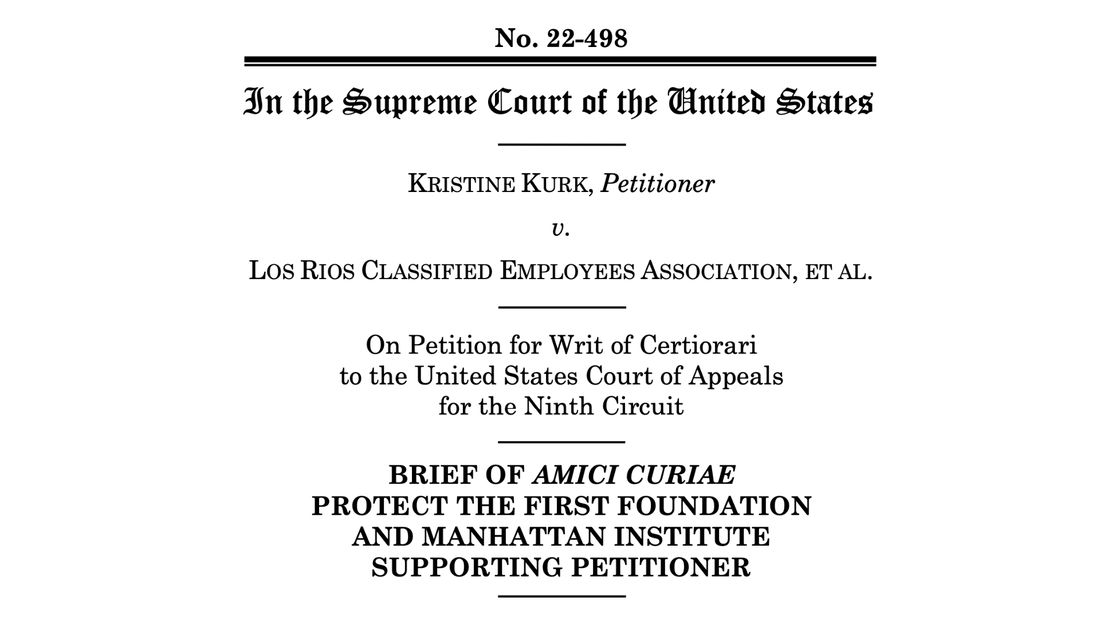
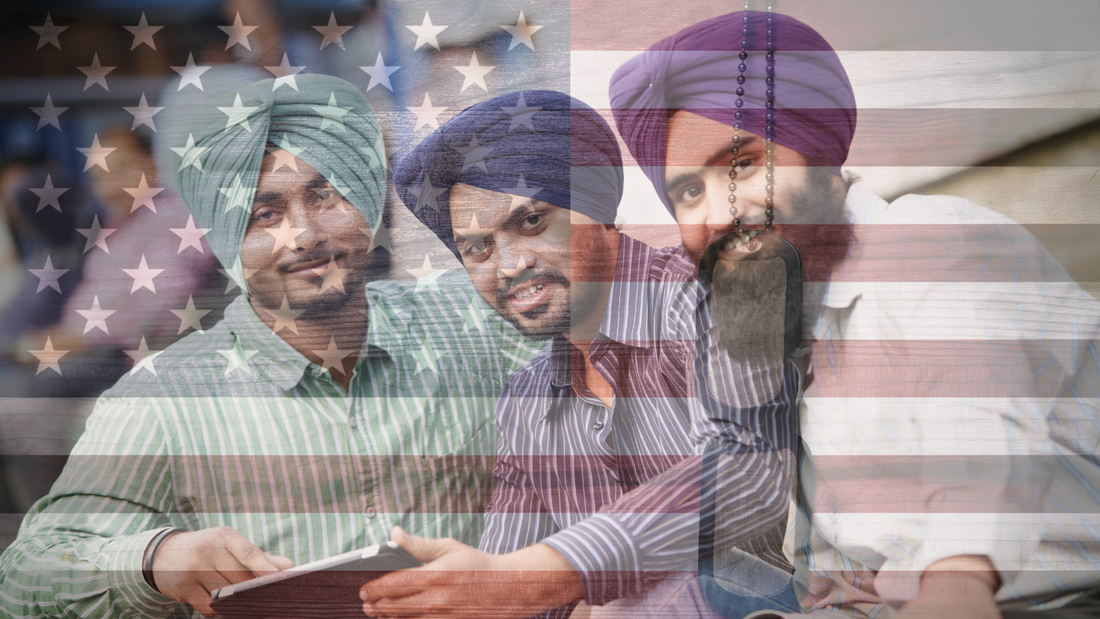
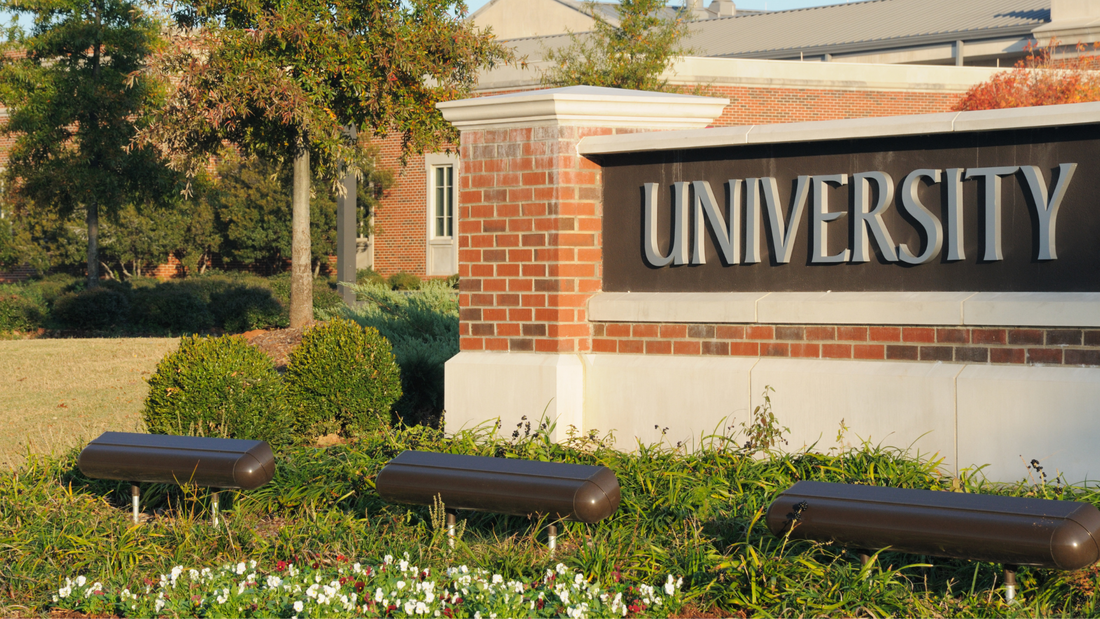
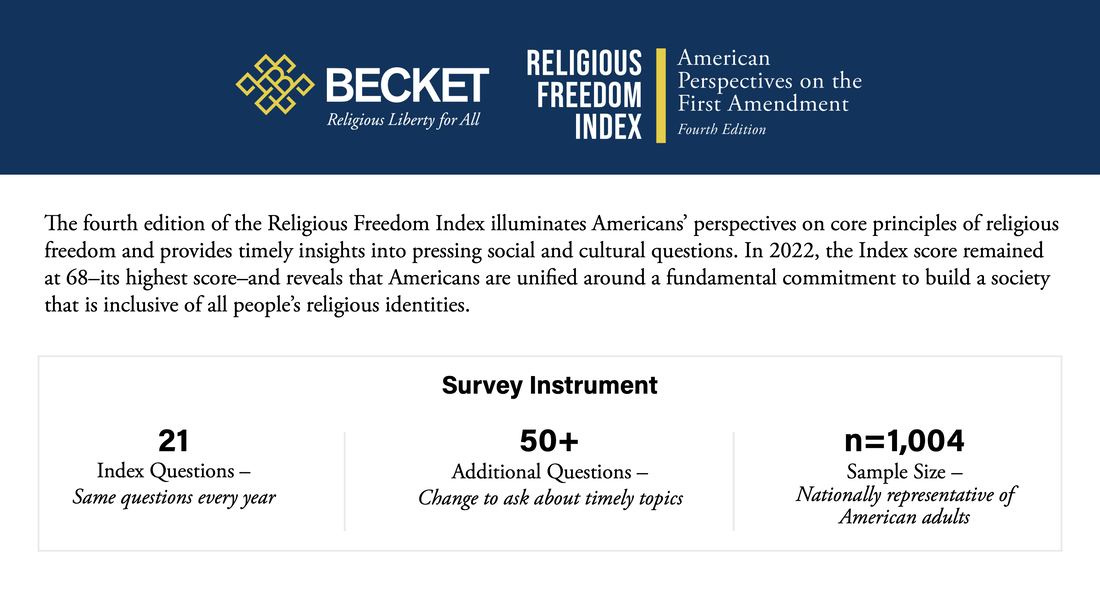
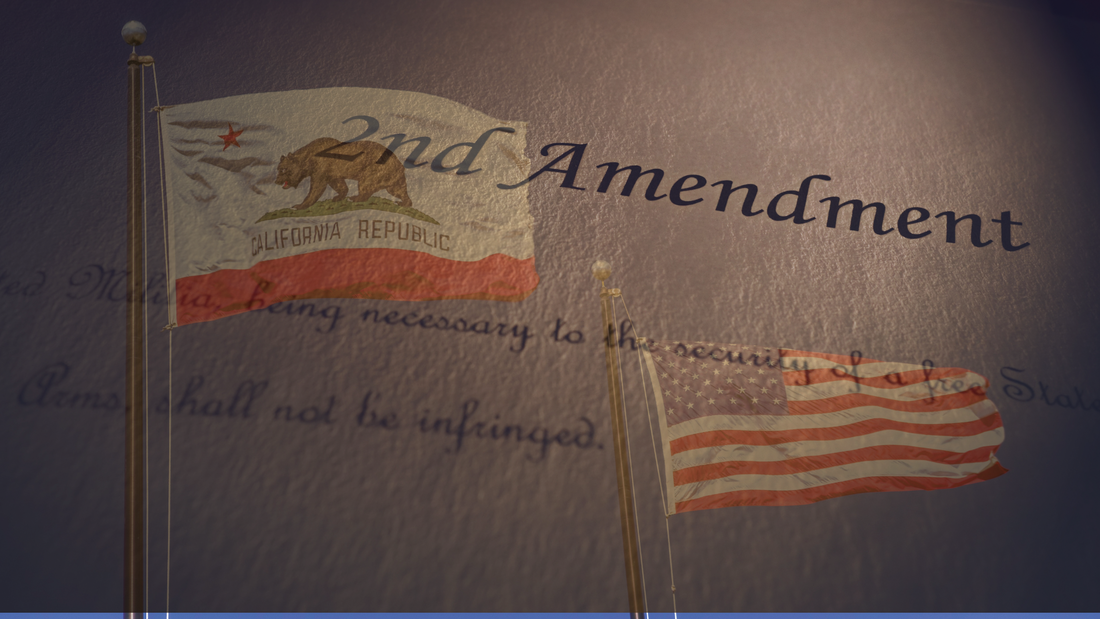
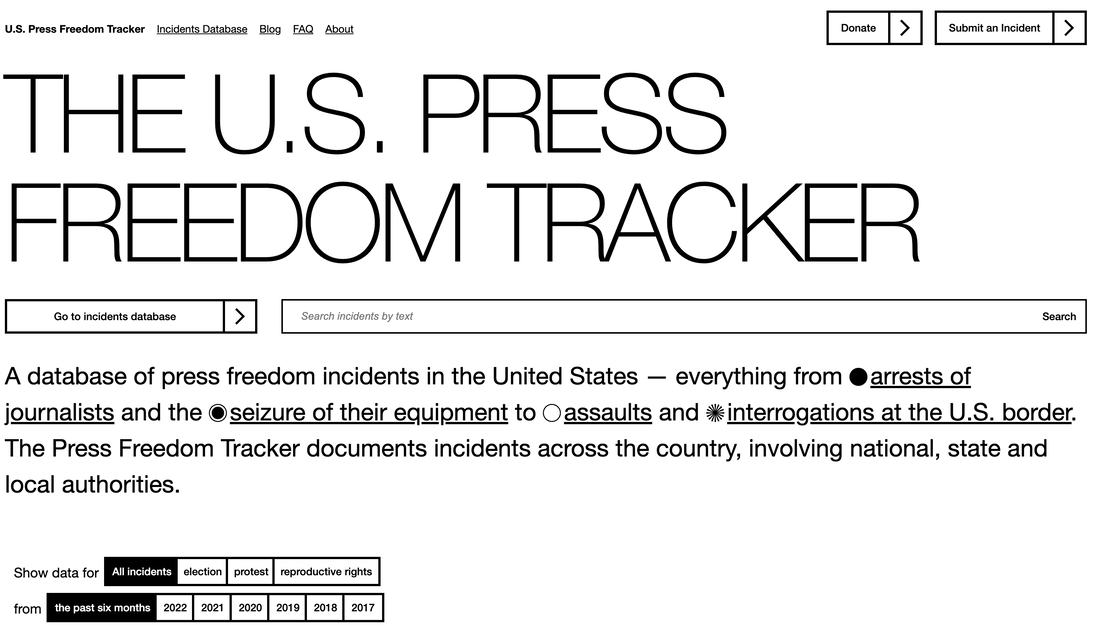
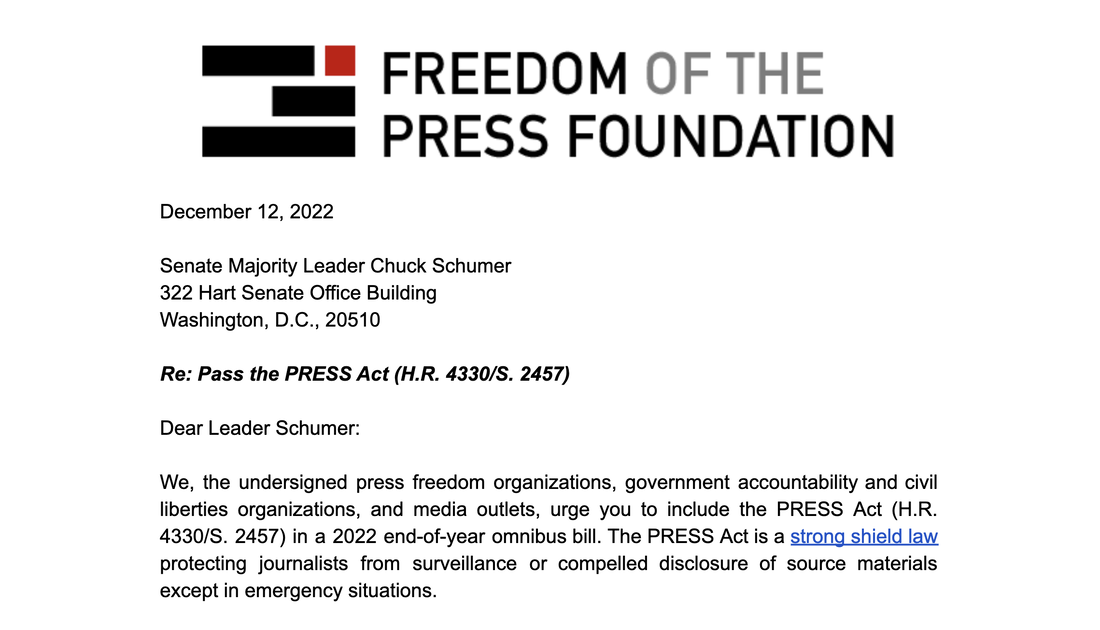



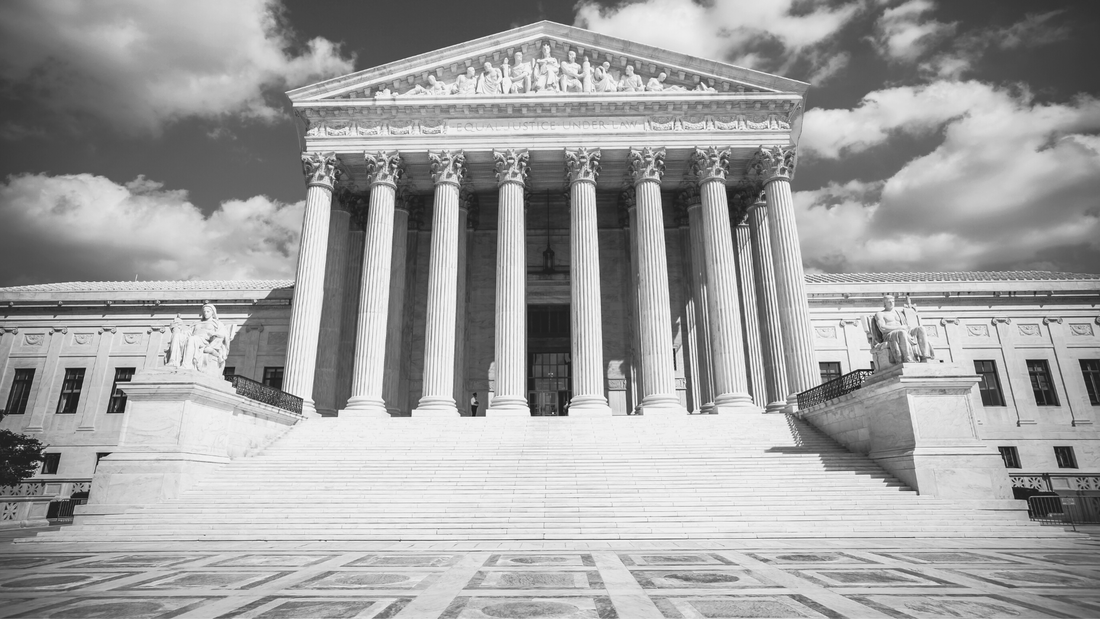
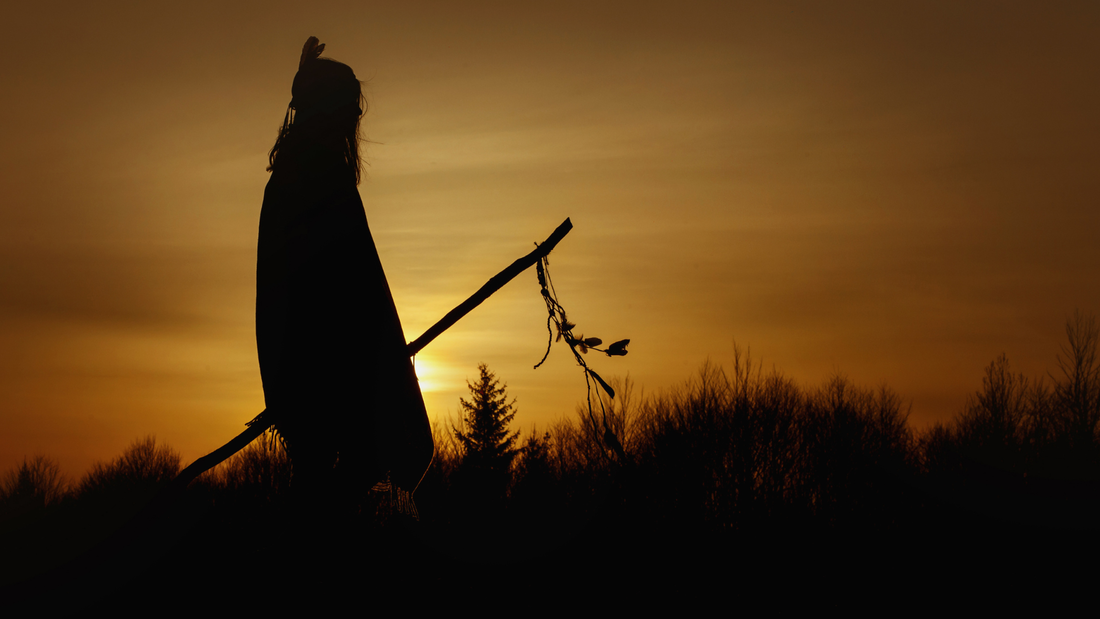

 RSS Feed
RSS Feed